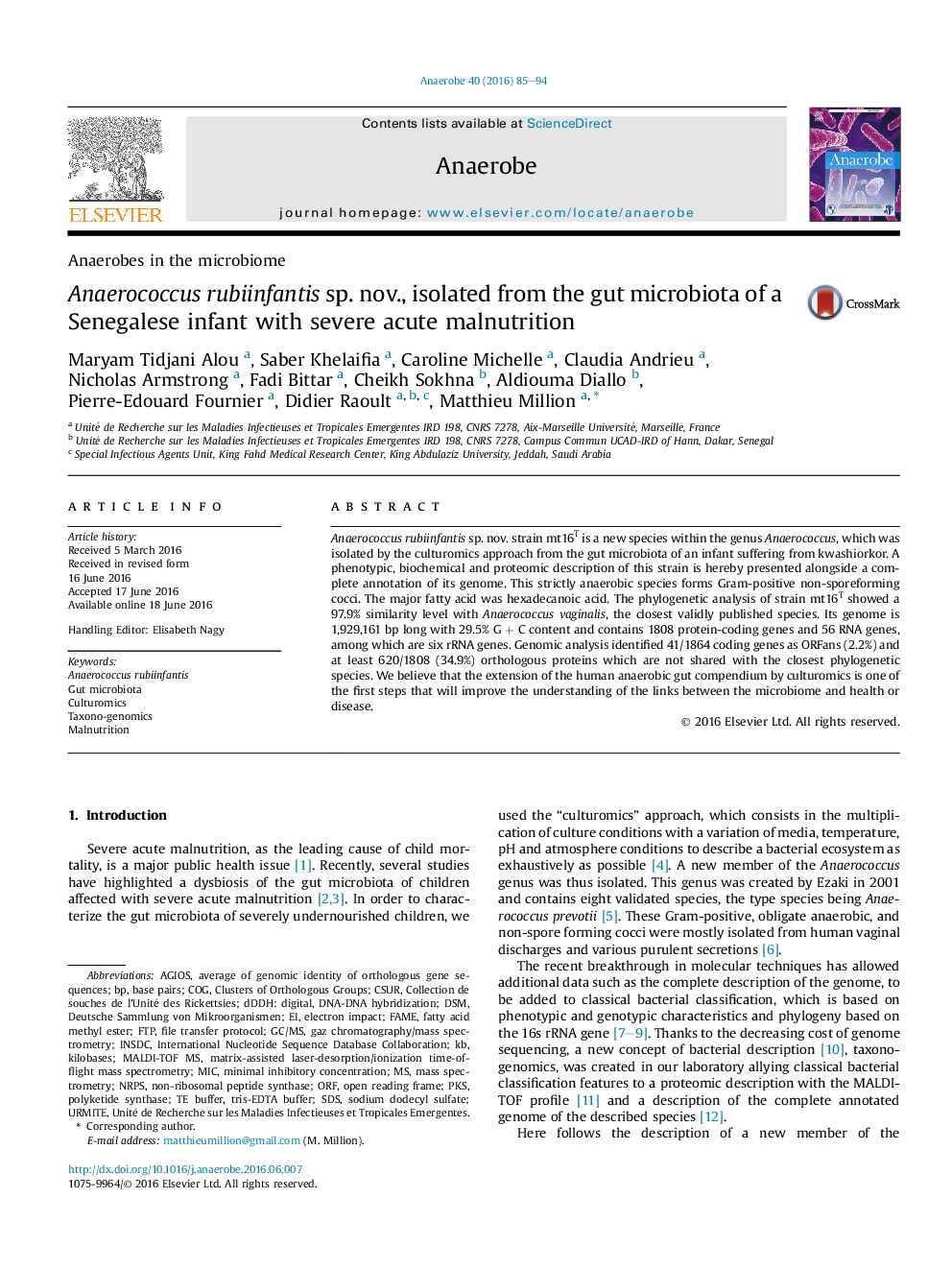| Article ID | Journal | Published Year | Pages | File Type |
|---|---|---|---|---|
| 3394873 | Anaerobe | 2016 | 10 Pages |
•Anaerococcus rubiinfantis is a strictly anaerobic, Gram-positive coccus.•Its genome which 1,929,161 bp long with a 29.45% G + C content.•It contains 1864 genes including 1808 protein-coding genes and 56 RNA genes.•This new species represents an extension of the human anaerobic gut microbiota.
Anaerococcus rubiinfantis sp. nov. strain mt16T is a new species within the genus Anaerococcus, which was isolated by the culturomics approach from the gut microbiota of an infant suffering from kwashiorkor. A phenotypic, biochemical and proteomic description of this strain is hereby presented alongside a complete annotation of its genome. This strictly anaerobic species forms Gram-positive non-sporeforming cocci. The major fatty acid was hexadecanoic acid. The phylogenetic analysis of strain mt16T showed a 97.9% similarity level with Anaerococcus vaginalis, the closest validly published species. Its genome is 1,929,161 bp long with 29.5% G + C content and contains 1808 protein-coding genes and 56 RNA genes, among which are six rRNA genes. Genomic analysis identified 41/1864 coding genes as ORFans (2.2%) and at least 620/1808 (34.9%) orthologous proteins which are not shared with the closest phylogenetic species. We believe that the extension of the human anaerobic gut compendium by culturomics is one of the first steps that will improve the understanding of the links between the microbiome and health or disease.
